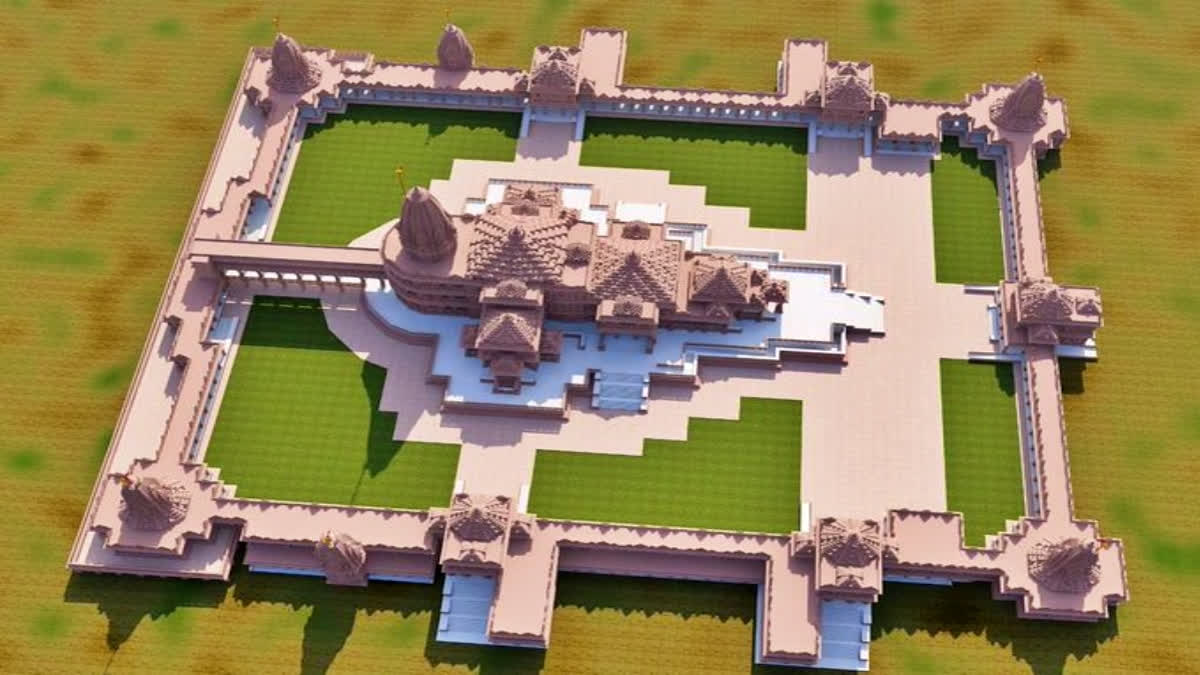Hyderabad: Ayodhya's Ram Mandir is all set for its consecration on January 22. Amidst all the hype, Shri Ram Janmbhoomi Teerth Kshetra, the trust formed to carry out the construction and management of Ram Mandir has revealed some of the special features of the temple.
According to the trust, the temple is a marvelous structure that reflects the traditional Nagar style of architecture. There is much that will attract your attention towards the breath-taking creation. Here are 20 specific features listed by Shri Ram Janmbhoomi Teerth Kshetra:
- The temple is built in the traditional Nagar style.
- The Mandir has a length (east-west) of 380 feet, a width of 250 feet, and a height of 161 feet.
- The building is three-storied, with each floor being 20 feet tall. It has a total of 392 pillars and 44 doors.
- A childhood form of Lord Ram has been installed in the main sanctum sanctorum. The first floor has a Shri Ram Darbar.
- The hall has five 'mandaps' - Nritya Mandap, Rang Mandap, Sabha Mandap, Prarthna, and Kirtan Mandap.
- The pillars and the walls are adorned with statues of deities, gods, and goddesses.
- The entry gate is made on the eastern side of the temple, ascending 32 stairs through the Singh Dwar.
- There is a provision of ramps and lifts for the convenience of the differently-abled and elderly pilgrims.
- The Parkota(rectangular compound wall) boasts 732 meters in length and 14 feet in width, surrounding the temple.
- Four mandirs are built at the four corners of the compound - dedicated to Lord Surya, Goddess Bhagwati, Lord Ganesh, and Lord Shiv. In the northern arm is a Mandir of Goddess Annapurna and in the southern arm is a temple of Lord Hanuman.
- Near the Mandir is a historic Well (Sita koop), dating back to the ancient era.
- In the Shri Ram Janmbhoomi Mandir complex, there are proposed Mandirs dedicated to Maharshi Valmiki, Maharshi Vashishtha, Maharshi Vishwamitra, Maharshi Agastya, Nishad Raj, Mata Shabri, and the revered consort of the Devi Ahilya.
- In the southwestern part of the complex, at Kuber Tila, the ancient Mandir of Lord Shiv has been restored, along with the installation of Jatayu.
- No iron is used anywhere in the construction of the temple.
- The foundation of the temple has been constructed with a 14-meter-thick layer of roller-compacted concrete (RCC), giving it the appearance of artificial rock.
- To ensure protection against ground moisture, a 21-foot-high plinth has been constructed using granite.
- The temple complex has a sewage treatment plant, water treatment plant, water supply for fire safety, and an independent power station.
- A Pilgrims Facility Centre (PFC) with a capacity of 25,000 people is being constructed, slated to provide medical facilities and locker facilities to the pilgrims.
- The complex will also have a separate block with a bathing area, washrooms, washbasin, open taps, etc.
- The temple is being constructed entirely using Bharat’s traditional and indigenous technology. It is being constructed with particular emphasis on environmental-water conservation with 70% of the 70-acre area being left green.
Read More



